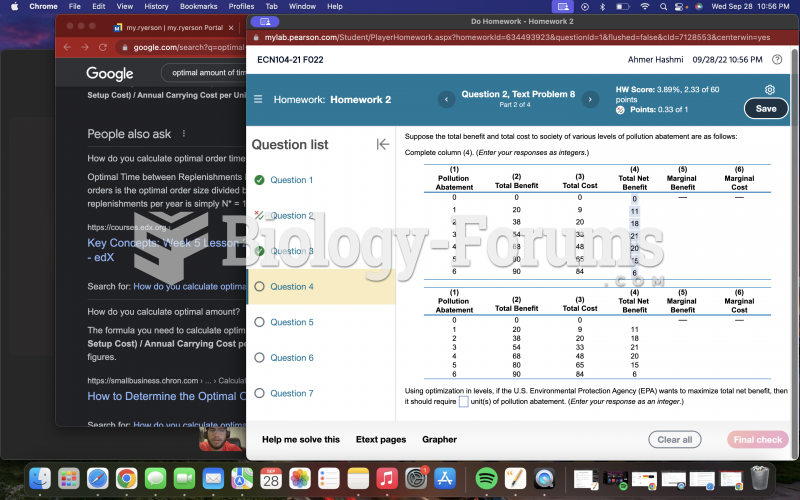Answer to Question 1
Correct Answer: 3
Rationale 1: This is an appropriate diagnosis for a client who is prescribed sodium bicarbonate.
Rationale 2: This is an appropriate diagnosis for a client who is prescribed sodium bicarbonate.
Rationale 3: A client on continuous nasogastric suctioning might experience base excess secondary to loss of stomach acid, which predisposes the client to metabolic alkalosis.
Rationale 4: This is an appropriate diagnosis for a client who is prescribed sodium bicarbonate.
Global Rationale: A client on continuous nasogastric suctioning might experience base excess secondary to loss of stomach acid, which predisposes the client to metabolic alkalosis. Sodium bicarbonate can be administered with methotrexate, to a client diagnosed with renal failure, and to a client with metabolic acidosis.
Answer to Question 2
Correct Answer: 1,2,3,5
Rationale 1: The nurse must monitor the client's level of consciousness while administering magnesium to determine the presence of adverse effects.
Rationale 2: The nurse must monitor the client's deep tendon reflexes while administering magnesium to determine the presence of adverse effects.
Rationale 3: The nurse must monitor the client's urine output while administering magnesium to determine the presence of adverse effects.
Rationale 4: The nurse would monitor a newborn for neuromuscular depression following delivery, not the client giving birth.
Rationale 5: The nurse would monitor the client's magnesium level in order to assess for toxicity.
Global Rationale: The nurse must monitor the client's level of consciousness, deep tendon reflexes, urine output, and the serum magnesium level while administering magnesium to determine the presence of adverse effects and toxicity. The nurse would monitor a newborn for neuromuscular depression following delivery, not the client giving birth.







